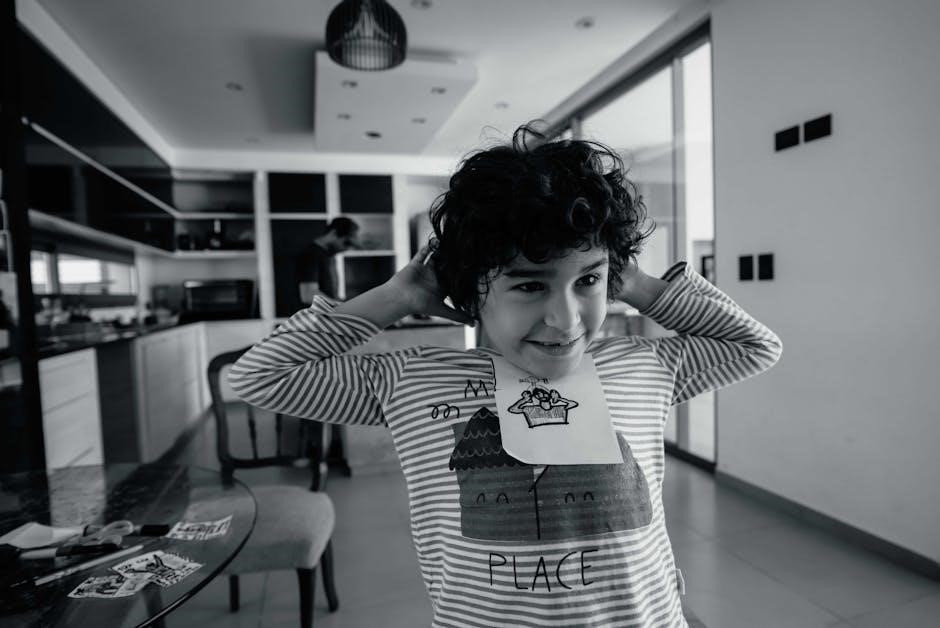Overview of “The Freedom Writers Diary” and the Movie Adaptation
“The Freedom Writers Diary”, authored by Erin Gruwell and her students, inspired the film “Freedom Writers”. The movie, directed by Richard LaGravenese, adapts the book’s powerful narrative.
“The Freedom Writers Diary” is a compilation of diary entries written by Erin Gruwell’s students, offering a raw and authentic glimpse into their challenging lives. These students, hailing from diverse backgrounds and facing immense social and economic obstacles, found solace and empowerment through writing. The diary provided an outlet for them to express their experiences with violence, discrimination, and poverty. It helped them find their voices.
The book showcases their personal growth as they confront their pasts, challenge their prejudices, and ultimately unite as a community; Gruwell’s innovative teaching methods, emphasizing tolerance and understanding, fostered a safe and supportive environment where students could thrive. The book’s impact lies in its ability to humanize marginalized voices. It reminds readers of the power of education and empathy to transform lives. The work became the basis for the acclaimed film.
The Film “Freedom Writers”: An Adaptation
“Freedom Writers,” the film, serves as a cinematic adaptation of “The Freedom Writers Diary,” bringing the students’ powerful stories to a wider audience. Directed by Richard LaGravenese, the movie stars Hilary Swank as Erin Gruwell, portraying her dedication and innovative teaching methods. The film translates the diary entries into visual narratives, depicting the students’ struggles, transformations, and the impact of Gruwell’s guidance.
While the film takes creative liberties, it retains the core message of the book, emphasizing the importance of empathy, understanding, and education in overcoming prejudice and violence. The film’s script, also penned by LaGravenese, captures key moments and themes from the diary, highlighting the students’ personal growth and their journey towards unity. Though some find the film less nuanced, it effectively conveys the diary’s emotional weight. It is important to remember that the film is based on real events.

Availability of “Freedom Writers” in PDF Format
The “Freedom Writers” materials, including the script, can be found in PDF format online. These PDFs offer access to the film’s screenplay for analysis and educational purposes.
Finding the Movie Script in PDF
Locating the “Freedom Writers” movie script in PDF format is achievable through several online platforms. Websites like Scripts.com host the screenplay for review and discussion. Other sites offer downloadable PDFs, enabling users to study Richard LaGravenese’s adaptation of “The Freedom Writers Diary”. When searching, be aware of potential variations in script versions and ensure the PDF is a complete transcript.
Some online libraries and educational resource sites may also contain the script. Utilizing specific search terms like “Freedom Writers script PDF” and filtering results can improve your search. Always verify the source’s credibility to ensure you obtain an accurate and complete version of the screenplay. Remember to respect copyright laws when accessing and using these materials.
Downloading the Full Movie Script PDF
To download the full “Freedom Writers” movie script in PDF format, start by searching reputable screenplay hosting websites. Many sites offer the script for free, while others may require a subscription. Before downloading, check the file size and user reviews to ensure it’s the complete script and not a partial excerpt.
Be cautious of websites offering downloads from unknown sources, as these may contain viruses or inaccurate scripts. Look for trusted domains and consider using a virus scanner before opening any downloaded files. Some educational platforms may also provide access to the script as part of their resources. Always respect copyright laws and use the script for personal study or educational purposes only. Confirm the script is by Richard LaGravenese.

Analyzing the “Freedom Writers” Script
The “Freedom Writers” script offers rich material for analysis, exploring themes of discrimination, social identity, and the transformative power of education, as highlighted in critical discourse analysis.
Themes Explored in the Script
The script of “Freedom Writers” profoundly explores several core themes, most notably discrimination and its pervasive impact on young lives. The aftermath of the 1992 Los Angeles riots serves as a stark backdrop, highlighting racial tensions and societal divisions that shape the students’ experiences.
Social identity is another crucial theme, examining how the characters define themselves and others based on race, ethnicity, and gang affiliation. The script delves into the challenges of overcoming prejudice and breaking down the barriers that separate them.
Furthermore, the script underscores the transformative power of education and empathy. Erin Gruwell’s unconventional teaching methods inspire her students to confront their pasts, embrace diversity, and find their voices through writing. The Holocaust serves as a powerful point of reference.
Ultimately, the script champions hope, resilience, and the potential for healing amidst violence and social injustice.
Critical Discourse Analysis of the Movie Script
A critical discourse analysis of the “Freedom Writers” script reveals how language and narrative construct meaning around themes of race, class, and social justice. The script’s dialogue, particularly Erin Gruwell’s impassioned speeches and the students’ diary entries, serves as a vehicle for challenging dominant ideologies and promoting empathy.
Analyzing the script through this lens highlights how power dynamics are represented and negotiated. The film critiques systemic inequalities within the education system and the broader societal structures that contribute to violence and discrimination.
Furthermore, a critical discourse analysis can illuminate the ways in which the script attempts to foster understanding and bridge divides between different social groups. By examining the language used to portray various characters and their interactions, one can gain insights into the film’s overall message of hope and reconciliation.
The analysis also reveals how the script aims to empower marginalized voices;
Educational Applications of “The Freedom Writers Diary” and Movie
“The Freedom Writers Diary” and its film adaptation are valuable educational tools. They promote discussions on tolerance, discrimination, and social justice within the classroom setting.
Using the Film in Education
The film “Freedom Writers” serves as a powerful tool in education, sparking critical discussions on sensitive topics. Educators can utilize the movie to address themes of discrimination, prejudice, and social injustice. The film’s narrative provides a relatable context for students to explore complex issues. The Freedom Writers script can inspire students to engage in meaningful dialogues, enhancing their understanding of diverse perspectives.
Analyzing the characters’ journeys and the challenges they overcome fosters empathy and critical thinking skills. Using scenes from the movie, teachers can encourage students to reflect on their own biases and assumptions. This promotes a more inclusive and understanding classroom environment. Furthermore, the movie can be paired with the original “Freedom Writers Diary,” offering students a deeper insight into the real-life experiences that shaped the story.
Curriculum Integration and Themes of Discrimination
“The Freedom Writers Diary” and the film adaptation offer valuable opportunities for curriculum integration, particularly when exploring themes of discrimination. The story provides a platform to analyze racism, social identity theory, and the impact of prejudice on individuals and communities. Educators can use the “Freedom Writers” script as a springboard for discussions on historical events, such as the Holocaust and the Los Angeles riots, connecting these events to contemporary issues.
Integrating the film into language arts, social studies, and even psychology courses can enrich student learning. Analyzing the dialogue, character development, and plot structure allows students to develop critical thinking and analytical skills. Examining the characters’ experiences with discrimination promotes empathy and encourages students to challenge stereotypes. The film’s themes can also be connected to other literary works.

Characters and Plot in the Movie
The film “Freedom Writers” presents compelling characters facing real-world challenges. The plot, based on “The Freedom Writers Diary”, highlights their transformation through education and understanding.
Main Characters Introduced in the Script
The “Freedom Writers” script introduces Erin Gruwell, a passionate teacher, and her diverse group of students facing challenges in post-riot Los Angeles. The script highlights students like Eva Benitez, a tough young woman deeply connected to her community. Marcus, another student, struggles with gang violence and family issues.
The movie script also presents characters like Tito, whose question about the Holocaust reveals the students’ lack of historical knowledge and the educational gap Gruwell aims to bridge. Ben, the only white student initially raising his hand, represents a different perspective within the classroom dynamic. The script further develops these characters, exploring their individual struggles and eventual growth.
These characters are interconnected through a shared environment of social and economic disparity, with the script diving into the backgrounds and the influences of the real world on each individual.
Plot Overview Based on the Script
The “Freedom Writers” script chronicles Erin Gruwell’s journey as she inspires her at-risk students through unique teaching methods. Set against the backdrop of a racially divided Long Beach, California, the script shows her initial struggles to connect with her students.
The plot progresses as Gruwell introduces unconventional learning tools, like diaries, to encourage self-expression and understanding. The script details the students’ gradual transformation as they confront their prejudices and learn to empathize with one another. The script highlights their discovery of the Holocaust, leading to a profound shift in their perspectives.
The narrative also includes Gruwell’s personal sacrifices, including the strain on her marriage, to fully dedicate herself to her students. Ultimately, the script culminates in the students’ collective success, demonstrating the power of education and the importance of understanding. The plot shows themes of discrimination and social identity.

The Making of “Freedom Writers”
“Freedom Writers” was brought to life through Richard LaGravenese’s screenplay, adapting “The Freedom Writers Diary” by Erin Gruwell and her students, creating a film about tolerance and understanding.
Richard LaGravenese’s Screenplay
Richard LaGravenese penned the screenplay for “Freedom Writers,” adapting the real-life experiences documented in “The Freedom Writers Diary.” His script aimed to capture the raw emotion and transformative journey of Erin Gruwell and her students. LaGravenese faced the challenge of condensing multiple personal narratives into a cohesive cinematic storyline. The screenplay emphasizes themes of tolerance, understanding, and the power of education to overcome adversity.
He sought to create authentic dialogue reflecting the diverse backgrounds of the students. The script incorporates elements of the 1992 Los Angeles riots to provide context for the students’ experiences. Critical discourse analysis can be applied to understand the screenplay’s portrayal of social issues. LaGravenese’s work brought these important stories to a wider audience, promoting discussions about discrimination and social justice;
The screenplay serves as a powerful tool for educational purposes, fostering critical thinking and empathy among viewers. The film effectively showcases the power of literature and writing in enabling students to find their voices and challenge existing social norms.
Based on the Book “The Freedom Writers Diary”
“The Freedom Writers Diary” serves as the foundation for the film “Freedom Writers,” offering a deeply personal account of Erin Gruwell’s experiences teaching at-risk students. The book’s strength lies in its authentic portrayal of the students’ struggles and triumphs, presented through their own diary entries. These entries detail their experiences with violence, poverty, and discrimination, providing a raw and unfiltered glimpse into their lives.
The film adaptation draws heavily from these narratives, aiming to capture the essence of the book’s message of hope and resilience. While the movie condenses and dramatizes certain events, it strives to remain true to the core themes and values presented in the diary entries. It highlights the transformative power of education and the importance of providing students with a safe space to express themselves.
The book provided a rich source of material for Richard LaGravenese’s screenplay, enabling him to craft a compelling narrative that resonates with audiences. The diary format lends itself well to exploring individual character arcs and showcasing the collective journey of the Freedom Writers.
